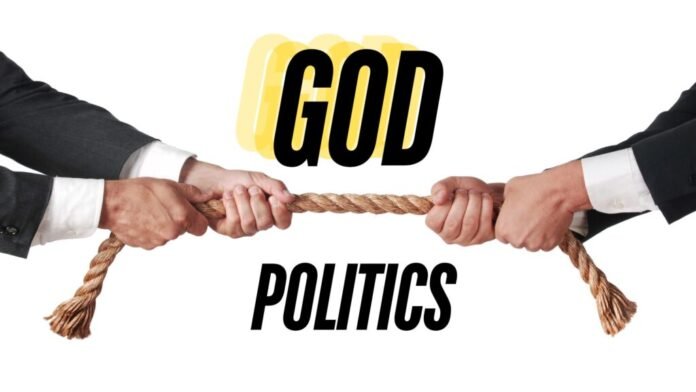By Pat Trevino
June 29, 2025
There’s a battle that often plays out quietly inside our hearts. It’s the tension between loyalty and conviction, between going along with what our political party promotes—and pausing to ask if it reflects God’s heart. For many, the “Big Beautiful Bill” may feel like a victory: economic boosts, national security, bold reforms. But Scripture beckons us to look deeper.
What does God’s justice look like? And are we living it out in how we vote, speak, and advocate? Deep down, most of us want to live in a way that honors what’s right, just, and good. But doing the right thing isn’t always simple—especially when our convictions collide with our loyalties. We find ourselves caught between conscience and party lines, between what feels politically strategic and what tugs at our moral center.
The “Big Beautiful Bill” is a perfect example. On the surface, it’s packaged with promises: tax relief, strong borders, economic strength. It aligns with many conservative values, and for loyal Republicans, supporting it might feel like the obvious choice. But when we sit quietly with Scripture—when we hear the voices of the poor, the sick, the foreigner—we might start to wonder: Just because it’s politically right, does that mean it’s biblically right?
In a culture that often rewards partisanship over principle, we’re faced with a difficult but essential question: Are we choosing what’s comfortable for our party, or what’s faithful to God? As followers of Christ, we’re called to wrestle with that tension, not ignore it.
You decide, here are the facts:
What Is the “Big Beautiful Bill”?
The “One Big Beautiful Bill Act” is a sweeping Republican-backed legislative package championed by President Donald Trump. It recently passed a key procedural vote in the Senate and is expected to be finalized by July 4. Here are the major components:
- Tax Cuts:
- Makes permanent many of Trump’s earlier tax breaks.
- Adds new provisions like no taxes on tips and increases the standard deduction and child tax credit.
- Spending Cuts:
- $267 billion cut to the Supplemental Nutrition Assistance Program (SNAP) over 10 years.
- Major reductions to Medicaid, with new work requirements that could affect millions.
- Border & Security Funding:
- $350 billion allocated to national security, including mass deportation efforts and border wall construction.
- Healthcare & Rural Hospitals:
- Creates a $25 billion rural hospital fund to offset some Medicaid cuts.
- Energy Policy:
- Rolls back many green energy tax credits from the Biden era.
- Debt Ceiling & Budget:
- Raises the debt ceiling while adding trillions to the national debt, according to nonpartisan analysts.
How Does It Compare to Biblical Principles?
Let’s look at some key biblical values and how they might relate to this bill:
1. Justice for the Poor and Vulnerable
“The righteous care about justice for the poor, but the wicked have no such concern.”
— Proverbs 29:7
- Analysis: The bill’s deep cuts to Medicaid and food assistance programs disproportionately affect the poor, elderly, and disabled. This raises concerns when viewed through the lens of biblical justice, which consistently calls for protecting society’s most vulnerable.
2. Wise Stewardship and Debt
“The borrower is slave to the lender.” — Proverbs 22:7
- Analysis: The bill is projected to add trillions to the national debt. While the Bible doesn’t prohibit debt, it warns against excessive borrowing and calls for fiscal responsibility.
3. Welcoming the Stranger
“Cursed is anyone who withholds justice from the foreigner, the fatherless or the widow.” — Deuteronomy 27:19
“The foreigner residing among you must be treated as your native-born. Love them as yourself.” — Leviticus 19:34
- Analysis: The bill’s emphasis on mass deportations and border fortification conflict with biblical teachings on compassion toward immigrants and refugees.
4. Fair Wages and Economic Justice
“Do not take advantage of a hired worker who is poor and needy.” — Deuteronomy 24:14
- Analysis: While tax relief for tipped workers may help some, critics argue the bill favors the wealthy and corporations, potentially widening economic inequality.
Final Thoughts
The “Big Beautiful Bill” is a bold and controversial package. Supporters argue it strengthens national security and promotes economic growth. Critics—including some Republicans—say it sacrifices the well-being of the poor and future generations for political gain.
From a biblical perspective, the bill raises serious ethical questions about justice, compassion, and stewardship. Biblical justice is deeply concerned with how society treats the least powerful—immigrants, orphans, widows, and the poor. Whether one supports or opposes it, the Bible challenges us to ask: Are we loving our neighbor, caring for the least among us, and acting with wisdom and humility?



